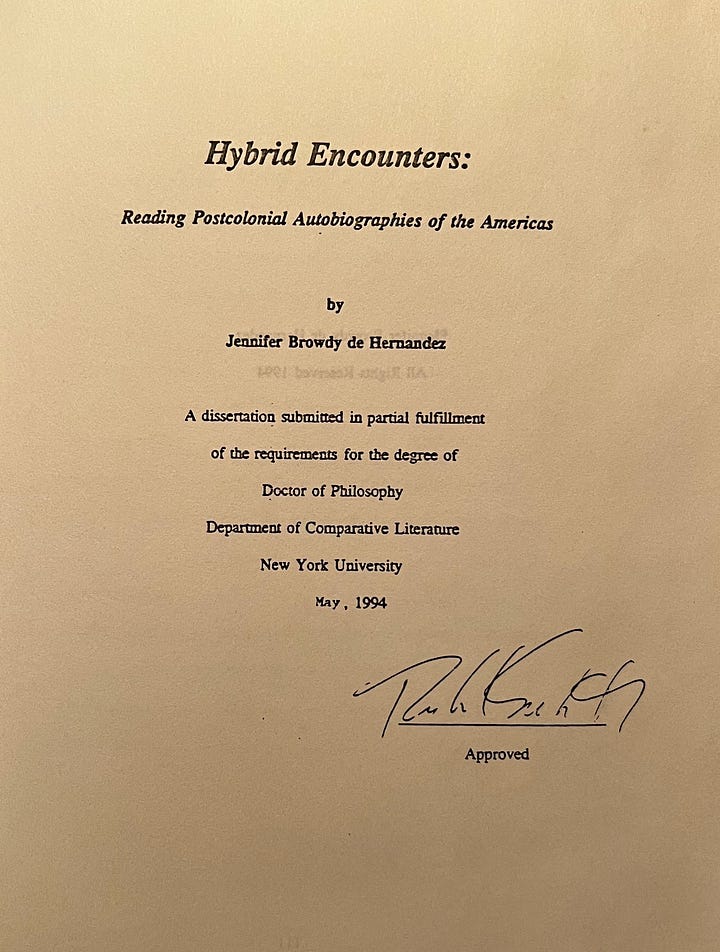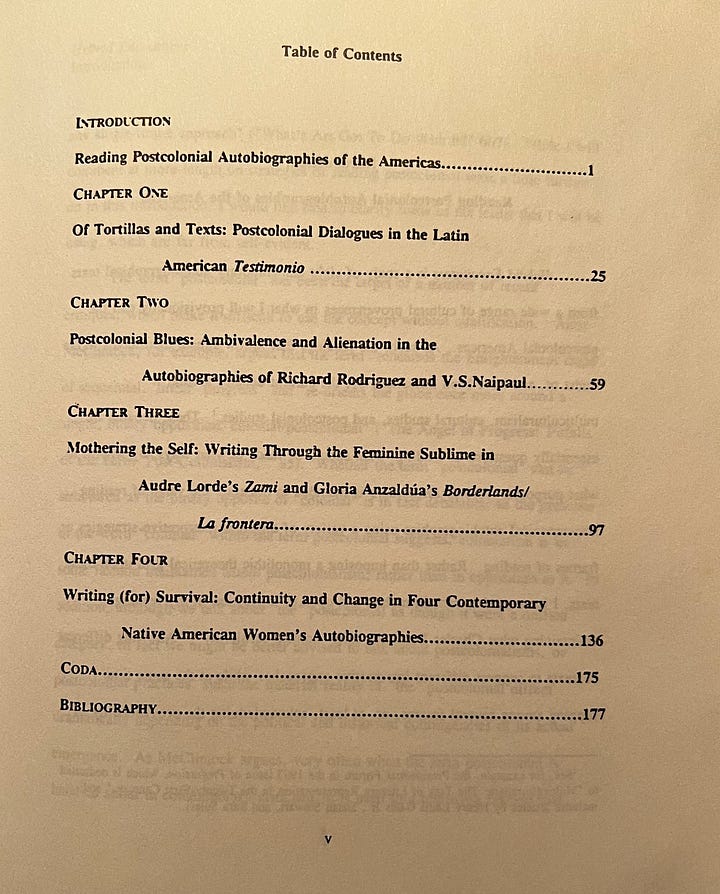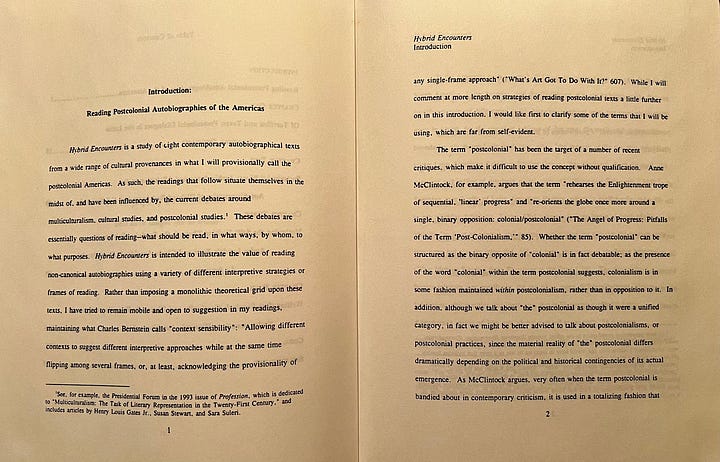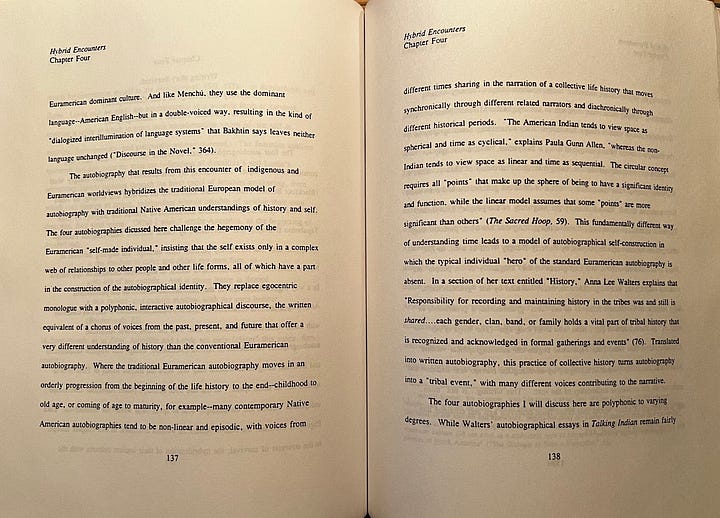In my graduate school days back in the 1980s, the "death of the author" was all the rage. Coined (in French) by the post-structuralist literary theorist Roland Barthes, it was the idea that texts are signifying machines, entirely independent from the flesh and blood author that had produced them.
What, I wonder, would Barthes have thought of "generative AI," literal text-producing machines that can write novels and pen (phony) memoirs with only the lightest prompting from a human being?
Would Barthes have delighted in the final "death of the author"? Or would he have been as creeped out by this "advance" as I am?
Even in graduate school, indoctrinated into deconstruction and post-structuralism as I was, I knew that there was something unethical about a group of elite white men proclaiming "the death of the author" just at the moment when women, BIPOC and non-Western voices were finally beginning to gain some traction in the mainstream.
My dissertation was called Hybrid Encounters: Postcolonial Autobiographies of the Americas, a comparative study of contemporary personal narratives by indigenous, Latinx, queer, Black and Asian people, mostly women, from the Americas (South America and the Caribbean, Central America, North America).




I explored the way postcolonial histories, geographies, languages and politics imprinted themselves on the "hybrid" identities of people rooted in multiple cultures. It was a fascinating study and the chapters were all published in academic journals, but I never turned it into a book, largely because by the time I finished writing and defending that thesis, I knew in my bones that the academic language I was using to talk about these texts and their authors was itself a colonial assault: it was like trapping butterflies on pins, a practice I wanted to unlearn almost as soon as I mastered it.
Now it seems like we are at another juncture where just as media technologies have democratized enough to loosen the stranglehold of the MFA/publishing industrial complex on creative expression, along comes AI with the prospect of upending the whole concept of authorship.
Not only is generative AI a magic wand for corporate capitalism, making the "death of the author" quite literal, it is also a tool which, like the smart phone itself, can easily alienate us from our innate creative power, making a phony tinsel funhouse copy of the true magic of the human imagination.
Thanks to the marvels of ChatGPT and its ilk, creativity can now be outsourced just like almost everything else we use and consume these days.
Need a poem? Your pocket AI can write you one, in any style, in a flash! Need a manifesto? Your personal assistant can easily oblige. What about a dream? Sure, no problem, coming right up!
But it is a problem.
If I no longer have to exercise my imagination, won't it start atrophying, just like any other muscle?
We already started to feel this with the advent of TV and mass media, which handed the role of the storyteller to the elite few (those Hollywood writers who just went on strike, trying to reaffirm their relevance), with the rest of us relegated to the role of passive consumer.
The result was a diminished diversity of voices and visions.
Ever wonder why so many Netflix series and mystery novels are so similar? Ever wonder why it seems to get harder and harder to give ourselves permission to think outside the (corporate capitalist) box?
Now, the very concept of authorship, of originality, is under attack.
I find myself feeling very defiant, wanting to use whatever power I have as a college professor, teacher, author coach and publisher to insist that we need to continue to cultivate the widest possible spectrum of creativity, honoring and respecting the unique human capacity—available to every one of us—to translate fleeting imagination into lasting art.
ChatGPT will only be the death of the author if we allow it to be.
Let's not go there.




I agree that ChatGPT is a threat. I agree that it "can easily alienate us from our innate creative power". I agree that "If I no longer have to exercise my imagination, won't it start atrophying, just like any other muscle?"
But I think that the possibility of human atrophying is not limited to ChatGPT. I think it is also true of other tools like GPS and Alexa and Siri, which have been accepted with little or no resistance.
And I think AI in general is a possible threat to human existence, either by making us totally incompetent by letting AI do everything, or even by AI taking control. Those concepts are familiar to any one who has read enough science fiction. Consider the Matrix and R.U.R.. The latter by Karel Čapek.
I think a lot of our problems are due to humans having faith in the benefits of progress and being unaware of the concepts of progress trap and precautionary principle.
I could say more, but I have already strayed from the point of your article.
I think you are right to be concerned and right to resist.
Isn't that part of the writer's strike?